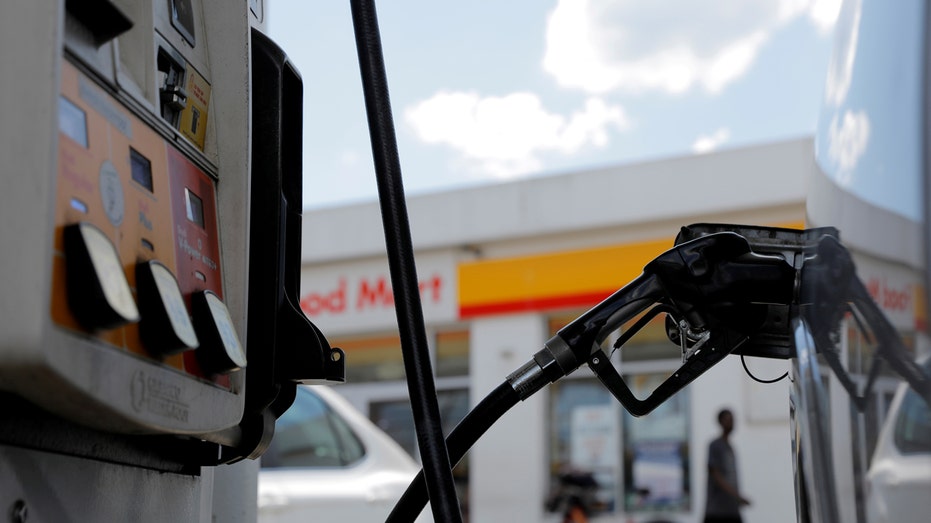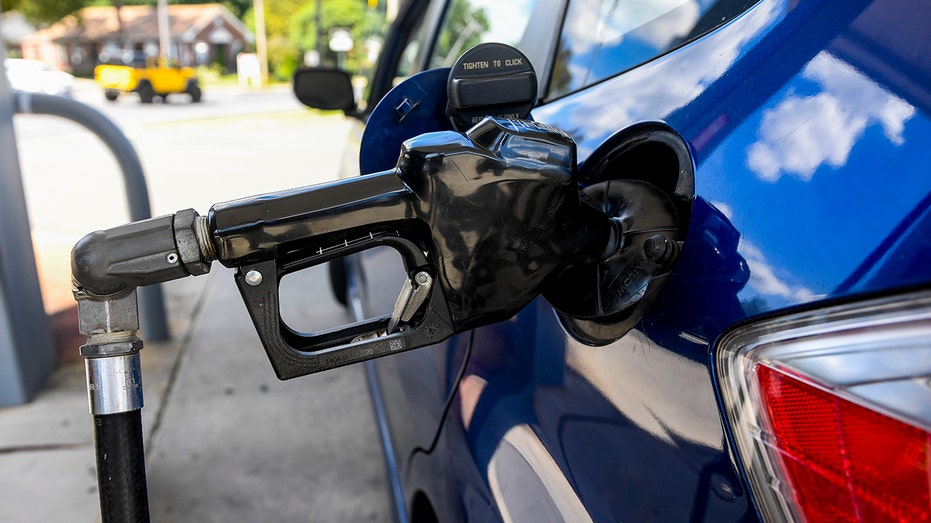Energy experts drill Senate Democrats' call to ban U.S. oil exports
"So what they're trying to do is save face to make it look like we are not to blame for the gasoline price problems when of course, they know that they are."
Biden, Democrats to blame for rising oil, energy prices: Rep. Jordan
Rep. Jim Jordan, R-Ohio, says Democrats' energy policies will have consequences on American families.
Energy experts are slamming a group of Senate Democrats who sent a letter to President Biden urging him to ban the U.S. crude oil exports in a move they say would lower gas prices for everyday Americans.
In the letter the 11 Democrats, including Sen. Elizabeth Warren, told Biden that the "choice of domestic leaseholders and producers to continue export U.S. petroleum" threatens to "send already record prices even higher" and called on him to "ban crude oil exports."
KUDLOW: STOP THE SPENDING, STOP THE MONEY PRINTING PRESSES
"That proposal does absolutely nothing to alleviate higher prices or to make prices lower than in any sort of relative sense," Petroleum Economist Karr Ingham of the Texas Alliance of Energy Producers told Fox News Digital in response to the letter. "The economics of that are pretty clear. And if the suggestion on the part of the administration is that in implementing a ban on U.S. crude oil exports makes US domestic crude oil prices lower and therefore, for example, U.S. gasoline prices lower, that's pure folly, that is not the effect."

A gas pump is seen in a car at a Shell gas station in Washington, D.C., U.S., May 15, 2021. REUTERS/Andrew Kelly/File Photo (REUTERS/Andrew Kelly/File Photo / Reuters Photos)
"Implementing a crude oil export ban does absolutely nothing," Ingham continued. "And it probably makes prices higher, not lower."
Karr added that the key to resolving the current gas price crisis is to get out of the way of U.S. oil and gas producers and allow production, which was drastically cut during the pandemic, to meet the demand as the pandemic comes to an end.
"The key to this is allowing U.S. oil and gas producers to do what they do best to simply get out of their way. Let them go to work," Ingham explained. "Remove as much uncertainty as can be removed from the legislative, regulatory, and economic environment and let them get back to the business of growing U.S. domestic crude oil production energy production as rapidly as they can."
REP. JORDAN: BIDEN, DEMOCRATS TO BLAME FOR RISING ENERGY PRICES
In the letter, Democrats implored Biden to release oil from the Strategic Petroleum Reserve and to ask OPEC to produce more oil. Both of those measures, Ingham says, will do little if anything to lower gas prices in the U.S. in the near term.
"This administration that implores OPEC to raise that production because the administration itself has artificially restricted production here seems patently silly," Ingham said. "I think most people understand all the hypocrisy involved in that request."
Ryan Sitton, former Texas energy regulator and founder and CEO of Texas-based reliability firm Pinnacle, agreed with Karr’s analysis and said the letter is pure partisan politics.

View of the pumpjack in the oil well of the oil field. The arrangement is commonly used for onshore wells producing little oil. Pumpjacks are common in oil-rich areas. (AP/iStock / AP Images)
"First of all, this is 100 percent political posturing," Sitton told Fox News Digital. "Democrats spent the last campaign season beating up on oil and gas, really leaning into climate change and things we need to do to affect climate change and that had a profoundly chilling effect on oil and gas investments, which has created or been a huge part of creating the oil shortage and now the gasoline price problem."
"So what they're trying to do is save face to make it look like we are not to blame for the gasoline price problems when of course, they know that they are," Sitton continued.
GET FOX BUSINESS ON THE GO BY CLICKING HERE
Sitton says that Democrats are hoping that in the short term a crude oil export ban would lower the price of U.S. crude oil so that the US refinery feedstocks would be cheaper and therefore gasoline would be cheaper but says they are making a "massive miscalculation."
"What it would do is it would tank the price of U.S. crude oil and therefore kill the U.S. oil business," Sitton explained. "At the same time, it would skyrocket the price of overseas crude oil, which means Russians and Saudi Arabia would be making tons of money and the U.S refining company would still have to pay that premium price for the crude oil it needs. It would tank the U.S. crude oil business while benefiting overseas competitors."
Rising gas prices are a big driver in consumer inflation which rose by the most in 31 years.
The cost of gasoline, within the CPI report out Wednesday, rose 6.1% in October, according to the Labor Department.
Energy prices jumped 4.8% last month and were up 30% over the past year, which largely resulted in higher costs at the pump for American drivers. The overall headline number rose 6.2% annually last month.
Currently, the average price for a gallon of gasoline in the U.S. is about $3.41, according to GasBuddy data. Prices are up 15.1 cents compared to a month ago and $1.31 per gallon higher compared to this time last year, based on price reports covering more than 150,000 gas stations across the country.

Reading, PA - September 20: The fuel nozzle in a car at a gasoline pump at the Citgo gas station on Lancaster Ave in Reading, PA Monday afternoon September 20, 2021. (Photo by Ben Hasty/MediaNews Group/Reading Eagle via Getty Images) (Ben Hasty/MediaNews Group/Reading Eagle via Getty Images / Getty Images)
This comes as President Biden continues to pressure OPEC and allied oil-producing countries to pump significantly more oil and lower gasoline prices for American drivers.
Thus far, the cartel has declined to adjust current production levels. Earlier this week, U.S. Energy Secretary Jennifer Granholm said an announcement on the oil and gas situation from the administration is imminent.
Fox Business' Daniella Genovese contributed to this report




















